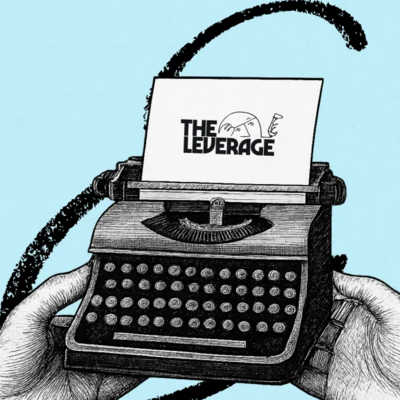
A blog post can move mountains. Prose, wielded correctly, is an explosive, world-changing energy. But, because writers are often constrained by the revenue and cost structures of a media business, they can only capture miniscule portions of that value. Writers are valued by society for their independence and good judgment, not for their ability to make money—and the ways in which writers make money are always somewhat suspect.
Therein lies the polarity in tech coverage: unabashed, reckless boosterism from tech bros and cruelly negative coverage from the traditional press.
We can explain away both the techno-utopian media and depressed, grumpy Slate articles by examining the incentives driving their respective businesses. Every single market force pushes writers toward starry-eyed optimism for sway, or toward jaded negativity for scale. These are the economics of tech writing. I’d like to think this publication has succeeded in the vanishing middle between these two gravitational fields, but that’s not an easy thing to do (and, as a result, has created a smaller business than if we were to embrace either of these extremes).
Tech companies continue to get richer, more powerful, and more ambitious—figuring out how to read the tea leaves about what they’re up to will give you an advantage in your life and career. Understand incentives and you’ll understand the world.
Incentivized polarity
The issue is this: Technology analysis is a shitty enterprise. A company that has to fight for every dollar of additional revenue struggles to hold the costly moral high ground.
When a media company makes something of value—say, a poignant or revelatory article, video, or podcast—it’ll be rewarded with social capital (trust, awards, inclusion) and with distribution (subscribers, readers, social media attention). Still, the economics of publishing on the web are so dreary, ever incentivizing gluts of free ad-subsidized extremes over well-researched and nuanced work, that it's hard to make much money even with a large audience.
However, in business media, there’s another option: Rather than scale, you can find a way to profit off equity. Cultivate favor with a small crowd of powerful people, and then find ways to get a piece of what they are building or investing in.
The two media archetypes are roughly this:
- Scale play: Write articles that are generally negative (if it bleeds, it leads) and only cover topics that have mass-market appeal. The general public is mostly interested in scandal as compared to progress. After all, there is a reason that true crime is the most popular podcast genre, not true-case studies on how I scaled my plumbing business. Everyone knows Adam Nuemann’s WeWork, but very few know the scientists who built the internet.
- Sway play: Write articles that appeal to your chosen audience of professionals. This means playing nice, cultivating sources, and glad-handing. In particular, if you’re not in the news business and don’t have the explicit mandate to get investigative scoops, you are gradually incentivized to be overly optimistic.
To be clear, I am not saying either of these options are morally corrupt or incorrect—I know great people employing both strategies. My point is that there are very real, very painful market forces impressed upon every person who writes online. The best media businesses cultivate a combination of revenue streams and social capital for their future benefit, but business media has the extremely tempting option of equity stakes.
The incentives are intensified when you switch from writing about publicly traded tech firms to private ones. For public companies, there are financial rewards for price discovery. Investors want to know the good and bad about a company’s business to determine whether a stock price is trading above or below true value. In private markets, there is no real way to profit off of a tech company’s demise, so there is no strong incentive to publish nuanced, net-negative analysis beyond a scale play.
However, positivity pays handsomely in private markets. You can get equity if the right founder or venture capitalist trusts you. And because business failure is only interesting in cases of outright scandal (like Theranos) rather than the more regular stuff like “the market was too small,” it is a distinctly sub-scale play, one that will be deemed uncouth by sway-play audiences because of the icky feeling of grave dancing.
A scale play in tech media requires capturing a significant portion of the overall tech workforce (probably 3.5-6.5 million users depending on how you cut the data).
The Only Subscription
You Need to
Stay at the
Edge of AI
The essential toolkit for those shaping the future
"This might be the best value you
can get from an AI subscription."
- Jay S.
Join 100,000+ leaders, builders, and innovators

Email address
Already have an account? Sign in
What is included in a subscription?
Daily insights from AI pioneers + early access to powerful AI tools







.08.31_AM.png)

Comments
Don't have an account? Sign up!
Appreciate the honesty and ethics
Goes to show the current state of the eyeball economy, even hard work hits a growth ceiling.
Great analysis
Thank you for actually reflecting on this stuff.
Thank you for the nuanced reflections. I used to work in financial publishing and witnessed several crossovers from journalism to investment banking, financial PR, and startups.